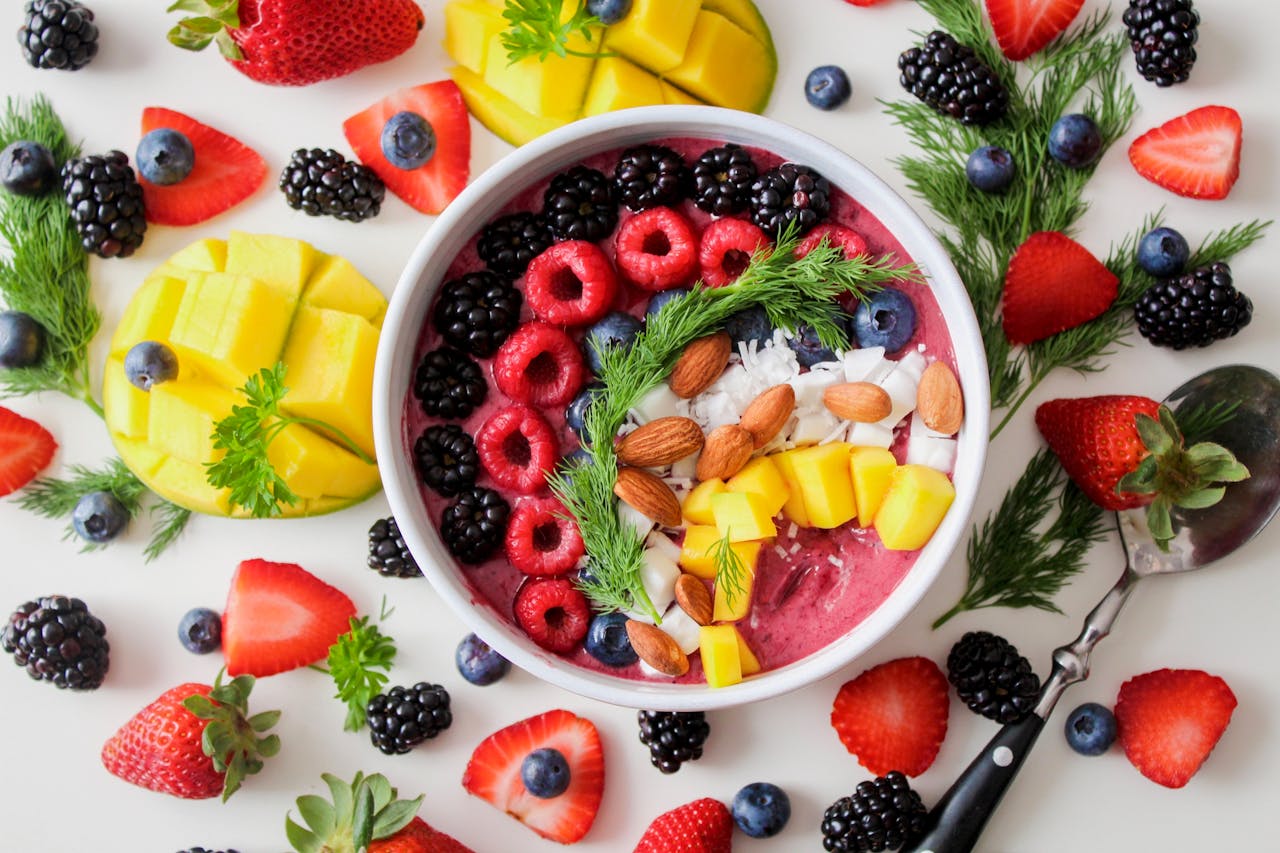According to the Centers for Disease Control and Prevention, 1 in 3 adults don’t get enough sleep. But what if I told you that the secret to sweet dreams might be hiding in your kitchen? That’s right – your diet could be the key to unlocking that sleep! In this article, we’ll explore the world of sleep friendly diet that can help you drift off to dreamland faster and wake up feeling refreshed. Get ready to transform your nights (and your plate) with these sleep-boosting superfoods!
The Science Behind Sleep Friendly Diet
Have you ever wondered why some nights you sleep like a baby, while others you’re left counting sheep until the wee hours? Well, it turns out that what’s on your plate might have a lot to do with what’s going on between the sheets – your bed sheets, that is!
Let’s dive into the world of sleep and diet. It’s not just about avoiding that late-night espresso (though that’s definitely a good idea). There’s a whole science behind how certain nutrients can affect your sleep hormones and help you catch those sleep.
Key Sleep-Promoting Compounds
First up, let’s talk about the star players in the sleep game:
- Melatonin: Often called the “sleep hormone,” melatonin is your body’s natural sleep regulator. It’s produced in the brain’s pineal gland and helps control your sleep-wake cycle.
- Tryptophan: You might know this one from Thanksgiving turkey comas. Tryptophan is an amino acid that your body uses to produce serotonin, which can then be converted to melatonin.
- Magnesium: This mineral is like a chill pill for your nervous system. It helps activate the parasympathetic nervous system, which is responsible for relaxation and rest.
But here’s the kicker – your body doesn’t just magically produce these compounds. It needs the right raw materials, and that’s where your diet comes in.
The Circadian Rhythm Connection
Now, let’s talk about your body’s internal clock or circadian rhythm. This 24-hour cycle regulates various physiological processes, including sleep. And guess what? Your diet can actually influence this rhythm.
Research has shown that irregular eating patterns can disrupt your circadian rhythm, potentially leading to sleep disturbances [1]. On the flip side, consistent meal times and a balanced diet can help keep your internal clock ticking smoothly, promoting better sleep.
So, the next time you’re tempted to grab a midnight snack or skip breakfast, remember – your circadian rhythm is watching!
Top 10 Foods for Sleep Friendly Diet
Now that we understand the science, let’s get to the good stuff – the foods that contribute to your sleep friendly diet. Think of these as your edible lullabies!
1. Tart Cherries: Nature’s Melatonin Cocktail
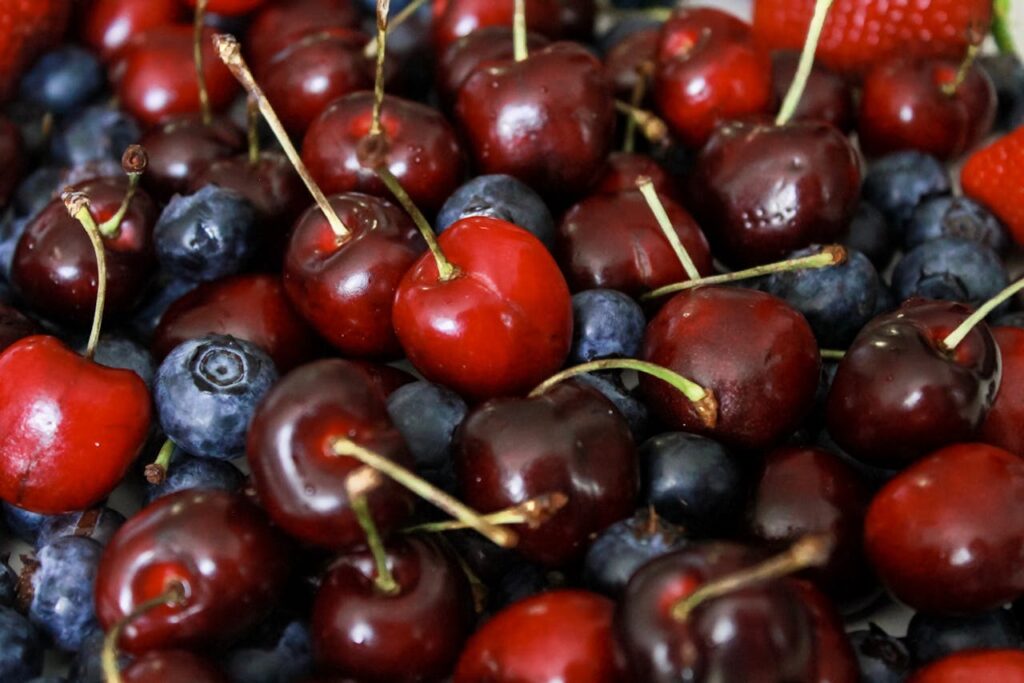
Tart cherries, especially in juice form, are like nature’s sleep tonic. They’re one of the few natural sources of melatonin, that sleep hormone we talked about earlier. A study published in the European Journal of Nutrition found that drinking tart cherry juice increased melatonin levels and improved sleep duration and quality in adults with insomnia [2].
Pro tip: Try having a small glass of tart cherry juice about an hour before bedtime. It’s like a natural sleeping pill, minus the side effects!
2. Kiwis: The Fuzzy Green Sleep Enhancers
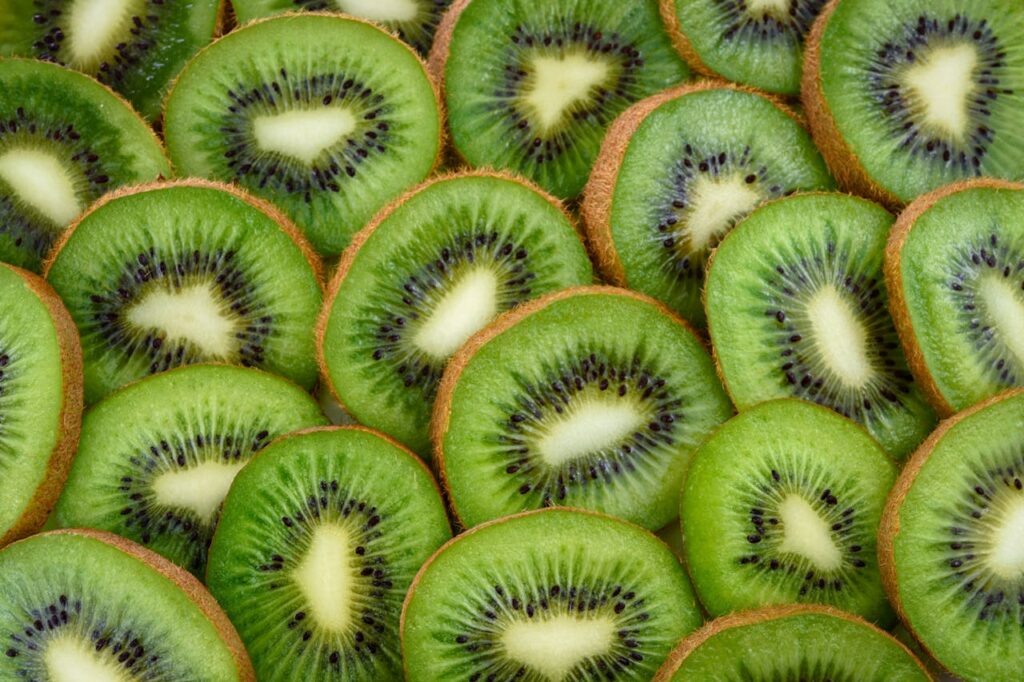
Who knew these little fuzzy fruits could pack such a sleep-friendly punch? Kiwis are rich in serotonin, a neurotransmitter that helps regulate sleep. They’re also loaded with antioxidants and fibre, which may contribute to their sleep-promoting effects.
A study from Taipei Medical University found that eating two kiwis one hour before bedtime for four weeks significantly improved sleep onset, duration, and efficiency [3]. So, next time you’re at the grocery store, don’t forget to grab a few of these green sleep boosters!
3. Fatty Fish: Omega-3s for Sweet Dreams
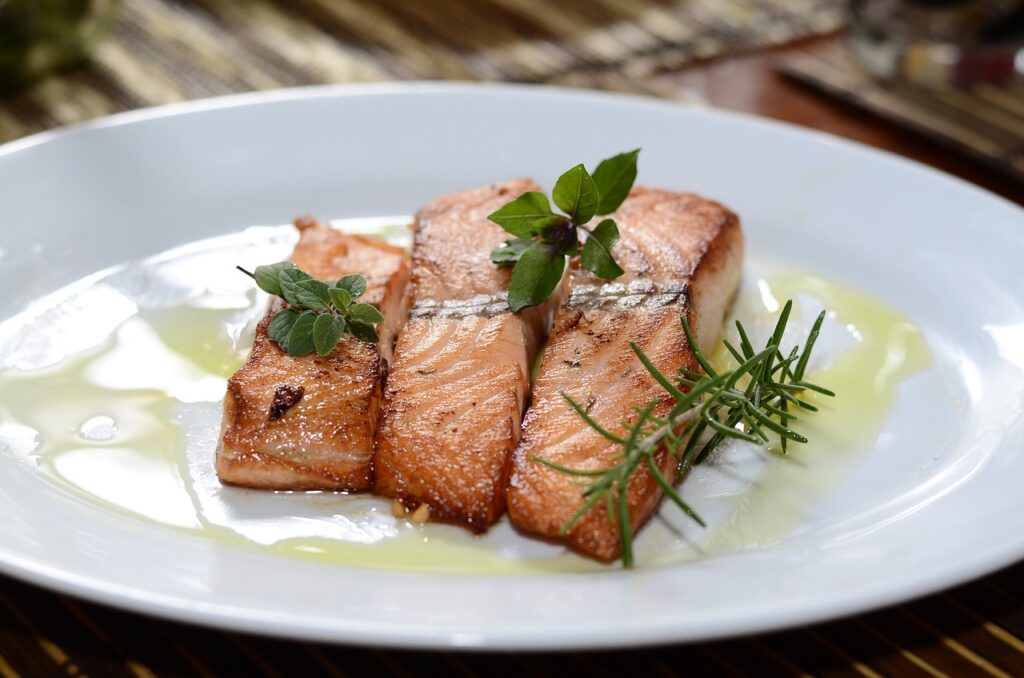
Salmon, mackerel, and sardines aren’t just good for your heart – they might also be part of your sleep friendly diet too. These fatty fish are rich in omega-3 fatty acids and vitamin D, both of which have been linked to better sleep quality.
A study published in the Journal of Clinical Sleep Medicine found that individuals who ate salmon three times a week had better overall sleep and improved daytime functioning[4]. The researchers attributed this to the omega-3 fatty acids and vitamin D in the fish. So, consider adding a fish dish to your dinner rotation for some potentially dreamy benefits!
4. Nuts: A Handful of Sleep-Friendly Goodness
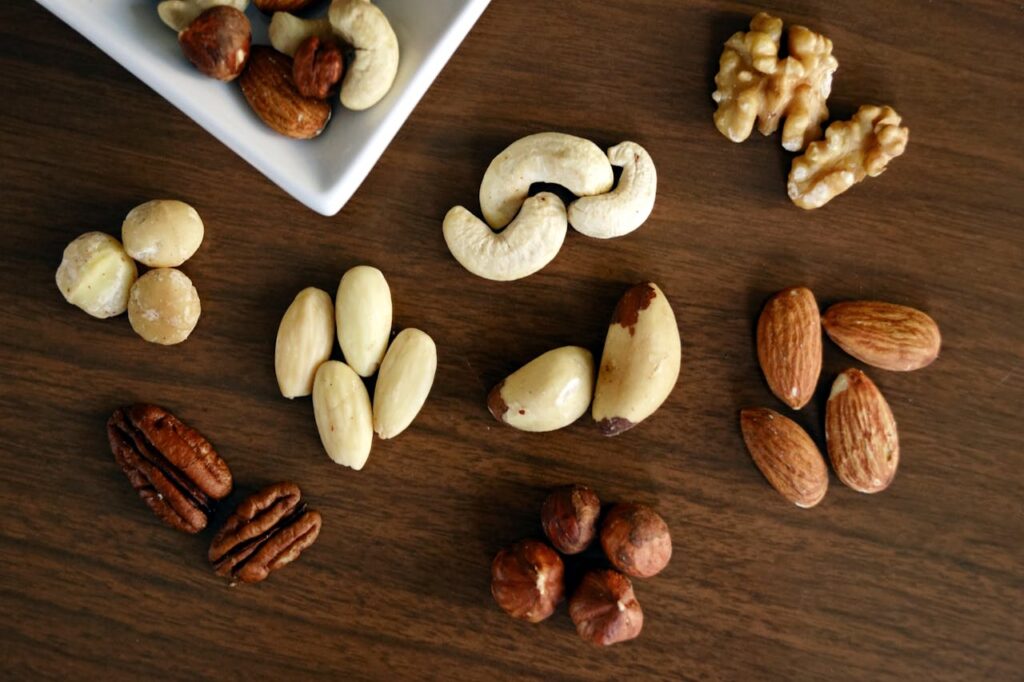
Nuts, especially almonds and walnuts, are like nature’s sleep supplements. They’re packed with magnesium, which we know helps activate the parasympathetic nervous system and get your body ready for sleep.
Almonds are particularly high in magnesium, with a one-ounce serving (about 23 almonds) providing 19% of your daily needs. Walnuts go a step further – they actually contain some melatonin. A study in the journal Nutrition found that eating walnuts increased melatonin levels in the blood [5].
Try having a small handful of almonds or walnuts as a bedtime snack. It’s a tasty way to potentially improve your sleep quality!
5. Warm Milk: Not Just an Old Wives’ Tale
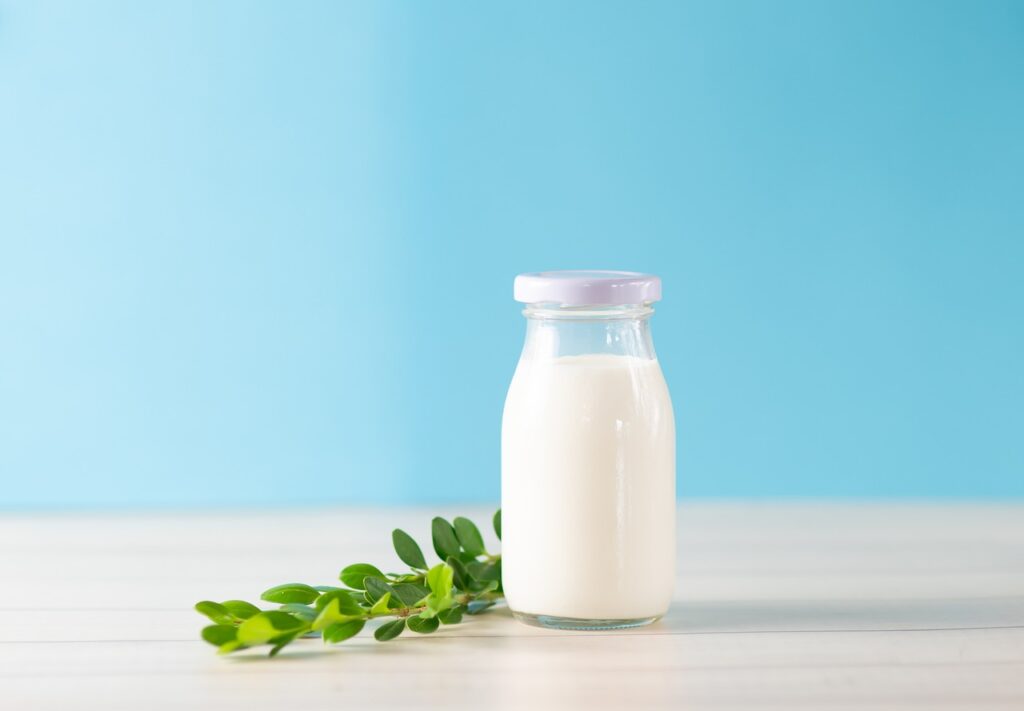
Remember when your grandma told you to drink a glass of warm milk before bed? Turns out, she was onto something! Milk contains tryptophan, an amino acid that helps produce serotonin and melatonin.
But it’s not just about the tryptophan. The ritual of drinking warm milk can be soothing and signal to your body that it’s time to wind down. Plus, milk is a good source of calcium, which helps the brain use tryptophan to produce melatonin.
If you’re lactose intolerant or vegan, don’t worry! Warm plant-based milk can have a similar soothing effect, and many are fortified with calcium.
6. Chamomile Tea: The Classic Bedtime Beverage

Chamomile tea has been used as a natural sleep aid for centuries, and for good reason. This herb contains an antioxidant called apigenin, which binds to certain receptors in your brain that may promote sleepiness and reduce insomnia.
A study in the Journal of Advanced Nursing found that postpartum women who drank chamomile tea for two weeks reported better sleep quality compared to a control group [6]. Even if you’re not a new parent, a cup of chamomile tea before bed might help you relax and prepare for sleep.
7. Bananas: The Perfect Bedtime Snack
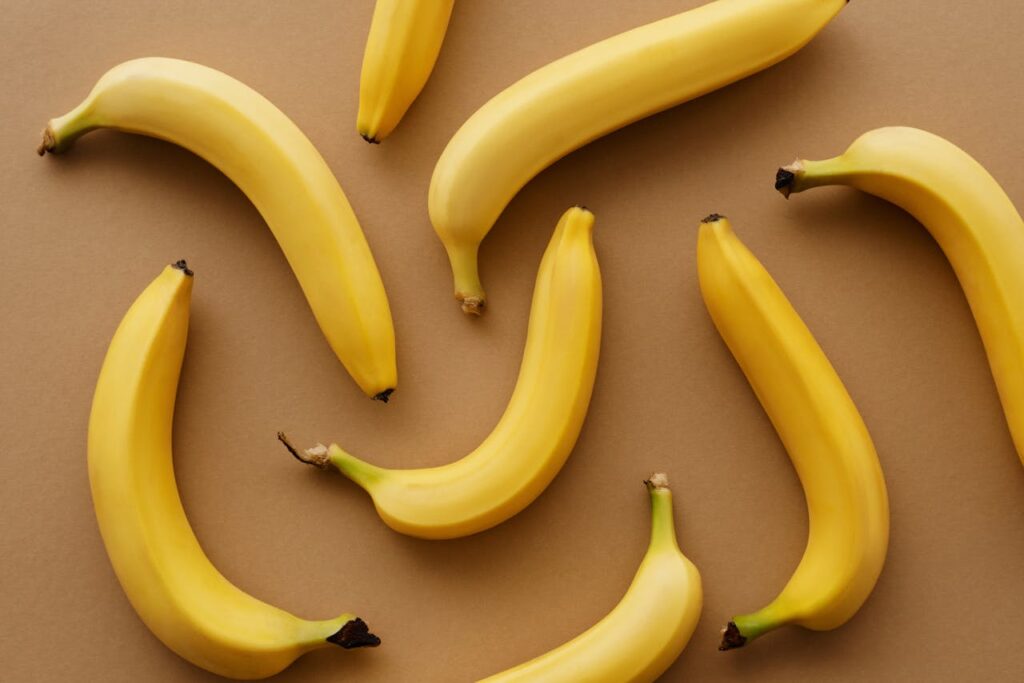
Bananas are a sleep-friendly powerhouse. They’re rich in potassium and magnesium, two minerals that act as natural muscle relaxants. They also contain tryptophan and carbohydrates, which can help make tryptophan more available to your brain.
The combination of nutrients in bananas can help promote relaxation and may aid in falling asleep faster. Try having a banana with a small smear of almond butter for a sleep-friendly bedtime snack.
8. Whole Grains: Complex Carbs for Better Sleep
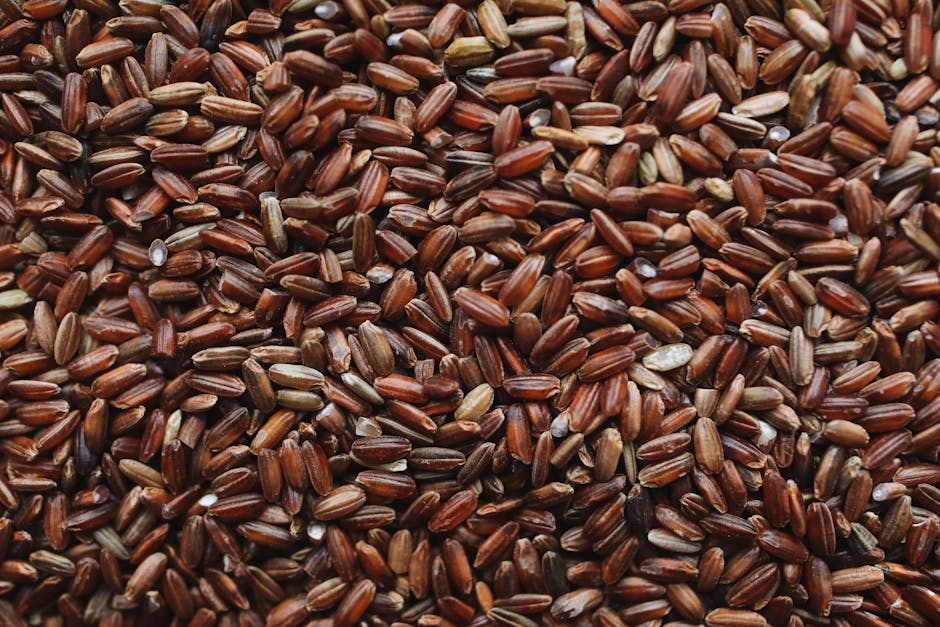
Whole grains like oatmeal, quinoa, and brown rice are rich in complex carbohydrates. These carbs can help increase the availability of tryptophan in your bloodstream, potentially making it easier for your body to produce serotonin and melatonin.
A study in the American Journal of Clinical Nutrition found that eating high-glycemic index carbohydrates before bed decreased the time it took to fall asleep [7]. However, it’s important to stick to whole grains and avoid refined carbs, which can cause blood sugar spikes and potentially disrupt sleep.
9. Turkey: Not Just for Thanksgiving
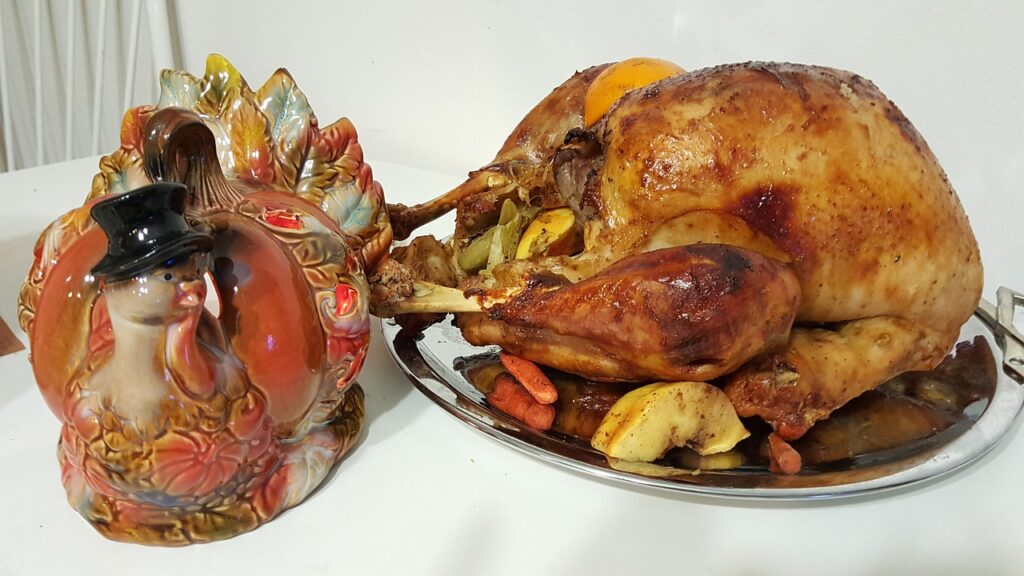
Turkey has a reputation for making people sleepy, and it’s not just because of holiday overindulgence. It is high in tryptophan, which we know is a precursor to serotonin and melatonin.
While turkey alone isn’t likely to knock you out (you’d have to eat a lot of it to get sleep-inducing levels of tryptophan), incorporating it into a balanced sleep friendly diet with complex carbohydrates could potentially help promote better sleep.
10. Leafy Greens: Calcium and Magnesium for Rest

Leafy green vegetables like spinach, kale, and collard greens are excellent sources of calcium and magnesium. Both of these minerals play a role in sleep regulation.
Calcium helps the brain use tryptophan to produce melatonin, while magnesium, as we’ve discussed, helps activate the parasympathetic nervous system. A study in the Journal of Research in Medical Sciences found that magnesium supplementation improved insomnia symptoms [8].
Try incorporating more leafy greens into your sleep friendly diet or having a small salad with your evening meal for a potential sleep boost.
Creating a Sleep Friendly Diet Plan
Now that we know which foods can potentially help us sleep better, let’s talk about how to incorporate them into our daily meals. Consistency is key when it comes to influencing your sleep patterns through diet.
Tips for Incorporating Sleep-Promoting Foods
- Start your day right: While it might seem counterintuitive to think about sleep first thing in the morning, setting yourself up for good sleep starts early. Try having oatmeal with almonds and a sliced banana for breakfast. The complex carbs, tryptophan, and minerals can help regulate your sleep-wake cycle.
- Make lunch count: Include some fatty fish or turkey in your lunch for a dose of tryptophan and omega-3s. Pair it with a side of leafy greens for added calcium and magnesium.
- Snack smart: Choose sleep-friendly snacks like a handful of nuts or kiwi fruit. These can help curb hunger without disrupting your sleep later.
- Design a sleep friendly diet: Create dinner combinations that include several sleep-friendly foods. For example, grilled salmon with quinoa and sautéed spinach hit multiple sleep-friendly notes.
- End on a sweet (but sleep-friendly) note: If you enjoy dessert, try a small bowl of tart cherries or a banana with a dollop of almond butter.
Sample Dinner Ideas
Here are a few dinner ideas that combine multiple sleep-friendly ingredients:
- Herb-roasted turkey breast with sweet potato mash and steamed kale
- Grilled salmon with quinoa pilaf and roasted Brussels sprouts
- Spinach and walnut salad with grilled chicken and whole-grain bread
- Whole grain pasta with sardines, cherry tomatoes, and wilted arugula
Bedtime Snack Suggestions
If you find yourself needing a little something before bed, try these sleep-friendly snacks:
- A small handful of almonds or walnuts
- A banana with a teaspoon of almond butter
- A small glass of tart cherry juice
- A cup of chamomile tea with a few whole-grain crackers
- A small bowl of whole-grain cereal with milk (dairy or plant-based)
While these foods may help promote better sleep, it’s important not to eat too close to bedtime, which brings us to our next point…
Foods to Avoid for Better Sleep
Just as some foods can make up a sleep friendly diet, others can hinder your journey to dreamland. Here are some foods and drinks you might want to limit or avoid, especially in the hours leading up to bedtime:
Caffeine: The Sleep Stealer
This one’s probably no surprise, but it bears repeating. Caffeine is a stimulant that can significantly impact your ability to fall asleep and stay asleep. What might surprise you is how long caffeine can affect your system – up to 6 hours or more for some people.
Coffee is the most obvious source, but don’t forget about other caffeine-containing foods and beverages like:
- Tea (including some herbal teas)
- Chocolate
- Some sodas
- Energy drinks
- Some medications (always check labels)
Try to cut off caffeine intake at least 6 hours before bedtime, or earlier if you’re particularly sensitive.
High-Fat and Spicy Foods: Recipe for Restlessness
While a little fat in your diet is healthy and necessary, high-fat meals close to bedtime can lead to indigestion and discomfort, making it harder to fall asleep. The same goes for spicy foods, which can cause heartburn and disrupt sleep.
If you love your spices, try to enjoy them earlier in the day. And if you’re craving a late-night snack, opt for something light and easily digestible.
Alcohol: The Sleep Disruptor in Disguise
You might think that a nightcap is helping you sleep, but alcohol can actually disrupt your sleep cycle. While it might make you feel drowsy initially, alcohol can lead to lighter, less restful sleep and more frequent awakenings during the night.
If you choose to drink, try to finish your last drink at least a few hours before bedtime to minimize its impact on your sleep quality.
Sugary Treats: The Midnight Energy Spike
Late-night sugar consumption can lead to a quick spike in blood sugar, followed by a crash. This roller coaster can disrupt your sleep and potentially lead to middle-of-the-night awakenings.
If you have a sweet tooth, try satisfying it earlier in the day or opt for sleep-friendly sweet options like a small serving of tart cherries or a banana.
Timing for Your Optimal Sleep Friendly Diet
When it comes to sleep friendly diet, it’s not just about what you eat, but when you eat it. Let’s explore how meal timing can impact your sleep quality.
The Ideal Dinner Window
Aim to finish your last major meal of the day at least 2-3 hours before bedtime. This gives your body enough time to digest the food properly before you lie down. Eating too close to bedtime can lead to indigestion and acid reflux, which can disrupt your sleep.
Late-Night Snacking: Yay or Nay?
While it’s generally best to avoid eating right before bed, if you find yourself genuinely hungry, a small, sleep-friendly snack is better than going to bed with a growling stomach. Opt for something light and easily digestible, like a small handful of nuts or a piece of fruit.
Consistency is Key
Try to eat your meals at consistent times each day. This helps regulate your body’s internal clock, which in turn can improve your sleep-wake cycle. Your body thrives on routine, and this includes meal times.
A study published in Current Biology found that irregular eating patterns could lead to poor sleep quality and other negative health outcomes [9]. So, try to stick to a regular eating schedule, even on weekends.
Everyone’s body is different, and what works for one person might not work for another. Pay attention to how different foods and eating patterns affect your sleep and adjust accordingly. It might take some trial and error, but finding your ideal sleep friendly diet can lead to more restful nights and energized days.
Conclusion
Who knew that the path to dreamland could be so delicious? By incorporating these foods into your sleep friendly diet, you’re not just satisfying your taste buds – you’re giving your body the tools it needs to achieve deep, restorative sleep. A good night’s rest isn’t just about comfort; it’s essential for your overall health and well-being. So, why not start tonight? Whip up a sleep-promoting dinner, steep a calming cup of chamomile tea, and get ready to embark on your journey to better sleep.
What’s your favourite bedtime snack that helps you drift off to sleep?
References
[1] Pot, G. K. (2018). Sleep and dietary habits in the urban environment: the role of chrono-nutrition. Proceedings of the Nutrition Society, 77(3), 189-198. https://doi.org/10.1017/S0029665117003974
[2] Losso, J. N., Finley, J. W., Karki, N., Liu, A. G., Prudente, A., Tipton, R., … & Greenway, F. L. (2018). Pilot study of the tart cherry juice for the treatment of insomnia and investigation of mechanisms. American journal of therapeutics, 25(2), e194-e201. https://doi.org/10.1097/MJT.0000000000000584
[3] Lin, H. H., Tsai, P. S., Fang, S. C., & Liu, J. F. (2011). Effect of kiwifruit consumption on sleep quality in adults with sleep problems. Asia Pacific journal of clinical nutrition, 20(2), 169-174.
[4] Hansen, A. L., Dahl, L., Olson, G., Thornton, D., Graff, I. E., Frøyland, L., … & Pallesen, S. (2014). Fish consumption, sleep, daily functioning, and heart rate variability. Journal of clinical sleep medicine, 10(5), 567-575. https://doi.org/10.5664/jcsm.3714
[5] Reiter, R. J., Manchester, L. C., & Tan, D. X. (2005). Melatonin in walnuts: influence on levels of melatonin and total antioxidant capacity of blood. Nutrition, 21(9), 920-924. https://doi.org/10.1016/j.nut.2005.02.005
[6] Chang, S. M., & Chen, C. H. (2016). Effects of an intervention with drinking chamomile tea on sleep quality and depression in sleep disturbed postnatal women: a randomized controlled trial. Journal of advanced nursing, 72(2), 306-315. https://doi.org/10.1111/jan.12836
[7] Afaghi, A., O’Connor, H., & Chow, C. M. (2007). High-glycemic-index carbohydrate meals shorten sleep onset. The American journal of clinical nutrition, 85(2), 426-430. https://doi.org/10.1093/ajcn/85.2.426
[8] Abbasi, B., Kimiagar, M., Sadeghniiat, K., Shirazi, M. M., Hedayati, M., & Rashidkhani, B. (2012). The effect of magnesium supplementation on primary insomnia in elderly: A double-blind placebo-controlled clinical trial. Journal of research in medical sciences: the official journal of Isfahan University of Medical Sciences, 17(12), 1161.
[9] Chaix, A., Manoogian, E. N., Melkani, G. C., & Panda, S. (2019). Time-restricted eating to prevent and manage chronic metabolic diseases. Annual review of nutrition, 39, 291-315. https://doi.org/10.1146/annurev-nutr-082018-124320

